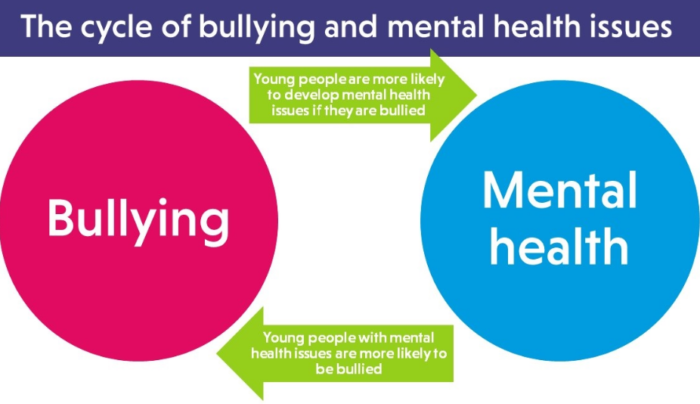
How to Identify If You Might Be a Bully
THIS ARTICLE HAS BEEN WRITTEN BY DR KYLIE MCDONAGH, CLINICAL PSYCHOLOGIST/STUDENT SUPPORT COUNSELLOR, FROM UNE COUNSELLING AND PSYCHOLOGICAL SERVICES (UNE CAPS).
What is Bullying?
The Australian Human Rights Commission defines bullying as:
When people repeatedly and intentionally use words or actions against someone or a group of people to cause distress and risk to their wellbeing. These actions are usually done by people who have more influence or power over someone else, or who want to make someone else feels less powerful or helpless.
Some people think that bullying is any aggressive behaviour and although aggression is a source of concern and needs attention, it is important to separate it from bullying. Bullying is not the same as conflict between people (like having a strong argument or disagreement) or disliking someone, even though people might bully each other because of conflict or dislike.
Bullying refers to a range of repeated behaviours that are unreasonable in whatever circumstances the person finds themselves e.g in the workplace, in shared living situations, in places of learning, or in social groups. It can be physical, verbal, or emotional and includes text messages, emails, or public statements and behaviour online that are intended to cause distress or harm.
Bullying behaviour includes aggression, intimidation, coercion or threatening behaviours. We have complied a few tips about bullying for you here.
Examples of bullying include:
- Behaving aggressively either by direct physical abuse or indirectly, by giving nasty looks, making rude gestures, calling names
- Belittling or humiliating comments
- Spreading malicious rumours, or misrepresenting someone (such as using their Facebook account to post messages as if it were them)
- Repeated negative teasing or practical jokes that go too far
- Pressuring someone to behave inappropriately
- Excluding someone from a group (online or in-person)
- Making unreasonable demands of someone
- Cyberbullying is bullying that takes place over digital devices such as mobile phones, computers, and tablets which includes, but it is not limited to SMS and text messages, social media, forums, online gaming and other apps that allows people to view, participate and share content.
Bullying is an abuse of people’s human rights. People have a right to be in an environment that is respectful, safe, and free from violence.Bullying affects each person in different ways. Some of the impacts of bullying include increased risk of developing depression and anxiety and overall poorer psychological and emotional functioning and even links to suicidal behaviour.
UNE has a zero-tolerance policy to bullying and there are also laws against bullying within Australia.

Image from: Mental Health Cycle
So how do you recognise if you might be engaging in bullying behaviour?
After reading some of the above examples of bullying you may be concerned you might be overtly or covertly bullying others or someone may have even told you that you are being a bully. If so these are some questions you can ask yourself about your behaviour.
- Is it teasing? Is it safe and is everyone having funny (including the person who the joke is about) or are people upset by your behaviour?
- Is it conflict? Is there equal power between the people involved, is it unplanned? Or is the person engaged in the behaviour in a higher power and it is a pre-planned behaviour?
- Is it a mean moment? Is it an isolated event? Or Is it a repetitive and intentional behaviour to cause distress?
- Do you repeatedly upset someone around you? You may notice this if someone gets angry at you a lot, complains about your behaviour, or is tearful often.
- Do you get aggressive? This may include openly shouting, threatening, or humiliating someone in front of others. But it could also be passive-aggressive comments, such as “Oh, you are doing it that way, that’s brave.”
- Do you thrive around insecure people? Do you make yourself feel better by evoking discomfort or insecurity in someone else?
- Do you spread malicious rumours about other people? It may not seem like a big deal, but spreading rumours could make someone’s life very upsetting.
If you think some of these points above apply to you, it might be worth paying attention to how you are treating others. It takes courage to recognise you might not be treating others with respect.
What can I do if I think I might be bullying others?
- Acknowledge your behaviours and take responsibility for your action
- Think about why you are behaving this way this (i.e, were you angry at someone, did you want to control someone else, was it to get even with someone, to stop others bullying you?)
- Think about how your behaviour may affect the other person
- Apologise, repair the damage, and make a change. If someone does not want to talk to you directly, you could try writing them a letter to apologise for your behaviour and will not act that way again.
Are you being bullied at UNE?
As we mentioned previously UNE has a zero-tolerance for bullying. We also have a range of teams that you can reach out to for support.
The Respect. Now. Always. initiative at UNE provides support and guidance to all UNE community members concerned about threatening or inappropriate behaviour; and includes specific information about what constitutes bullying and the UNE Student Grievance Unit in particular can investigate allegations of bullying and assist with resolving concerns about bullying behaviours.
If you would like to talk to a UNE counsellor about any of the issues mentioned here in a confidential and free service please contact UNE Counselling & Psychological Services (CAPS) on 02 6773 2897, or email via ASKUNE, to arrange an appointment.
You can also reach out to the teams at Advocacy & Welfare, UNE Colleges Support, and UNE Student Success for advice and help being pointed in the right direction.
UNE also has an after hour crisis phone support service on 1300 661 927 or text 0488 884 169 – it’s free and confidential, weekdays 4 pm to 9am and all weekend and public holidays as well as confidential online reporting, should you need or you can call Life Line at any time on 13 11 14.
You’re never alone at UNE!


